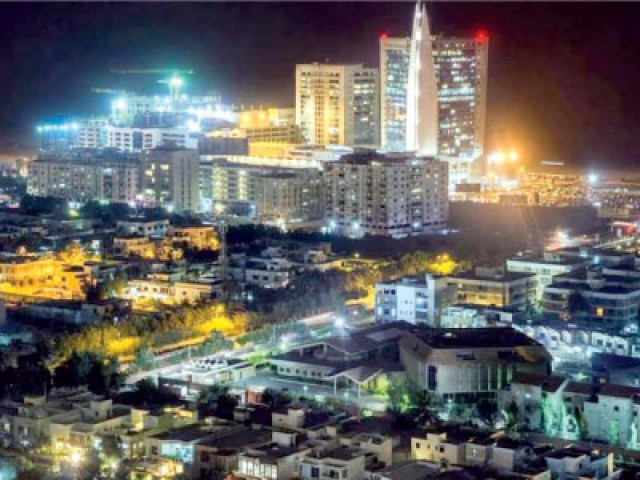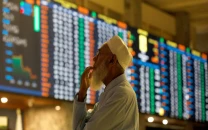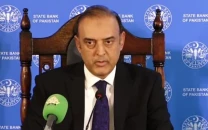Redefining economic paradigm
Islamic model viable alternative to capitalist system that perpetuates inequality

In the wake of the Covid-19 pandemic, economic turmoil is engulfing the middle class and the poor across the world. The pandemic derailed the world economy and efforts are being made to accelerate and revive economic growth. The pandemic restrictions forced complete lockdowns, including a complete ban on the movement of people.
The situation has been further complicated by the RussiaUkraine war. The conflict has sent shockwaves through the global economy as commodity markets are going through unprecedented challenges. Essential commodities like food and energy are showing a sharp hike in prices, which has fuelled global inflation. This is consequently undermining the purchasing power of people.
The impact of inflation is prevalent all around the world and even developed countries are suffering from it. Workers in the UK, US and Europe are asking their governments to increase wages to cope with inflation. However, the governments are unable to provide this relief, as they are not major employers and do not have enough financial resources to support people. The situation is even worse for developing and least developing countries, including Pakistan.
These countries are facing a dual challenge. First, they do not have resources to combat the multiple challenges. Second, many of them are highly indebted, which makes the situation worse. The problem has been further aggravated, as major economies are going through recession. For example, the United States is going through a contraction and the last quarter has reinforced this fear of recession. In this context, there is a need to ponder over the fundamental cause of widespread economic meltdown. Why do economic crisis occur every few years?
Economic experts have different viewpoints but the general consensus is that accumulation of wealth and lack of redistribution of resources explain the current malaise. Other reasons include government reliance on tax revenue and the peripheral role of the state in the creation of livelihood opportunities in a capitalist system. Crucially, capitalism has inflated the role of the private sector and markets, without giving due importance to the livelihood needs of people and the vital responsibilities of the state.
With the passage of time, capitalism has morphed into “warlord capitalism”, which has least regard for the economic rights of people. Thus, to reverse the crisis on a permanent basis, economic experts will have to provide timely solutions. First, governments will have to work to re-define the mechanism through which wealth is distributed. There are different methods in different systems like taxes in capitalism and the distributive role of the state in communism.
Capitalism, in theory, defines taxes as a means of compensation for the losers, which the system will inevitably create. However, with the passage of time, it failed to deliver, resulting in increasing inequality and alienation. Communism posited the state as the sole authority to decide and execute economic decisions. However, this system collapsed in the former Soviet Union and the country had to pay a heavy price in the form of disintegration.
On the contrary, the Islamic system came up with the idea of a moral economy and just redistribution of resources (Zakat) without compromising on private entities. It is the best available economic model, which can help to eliminate inequalities from the world. Second, there is a need to create a viable mechanism, which prevents the accumulation of wealth in a few hands. The prevailing system of capitalism does not offer any such solution.
Rather, it encourages and provides the means for the hoarding of wealth and the resulting economic inequality. For example, an interest-based system encourages people to earn money by depositing money into bank accounts for the purpose of earning interest. It discourages investment and wealthy people accumulate more wealth without undertaking any productive activity. The interest-based system is also the reason for the accumulation of debt at the personal, national and global level.
It was estimated that world debt in 2021 stood at $303 trillion against a global GDP of $94 trillion. This enormous debt is posing a serious threat to the world economy. Early signs are visible in the form of higher inflation, increasing interest rates and negative yields of bonds. In contrast, the Islamic system offers a remedy in the form of an interest-free economic system.
Third, the state will have to reconsider the balance between the private sector, markets and the living needs of people. Private sector growth should not come at the cost of the people. States will have to redesign the role of state-owned enterprises within the economic system and continue to spend on welfare programmes to support the people. Pakistan needs to devise its own economic model, based on the values of equality and fairness enshrined in the Islamic economic system.
The founding father of the nation, Muhammad Ali Jinnah, also advised the same at the inaugural session of State Bank of Pakistan in 1948. He said, “We must work our destiny in our own way and present to the world an economic system based on the true Islamic concept of equality of manhood and social justice. We will thereby be fulfilling our mission as Muslims and giving to humanity the message of peace which alone can save and secure the welfare, happiness and prosperity of mankind.”
THE WRITER IS A POLITICAL ECONOMIST



















COMMENTS
Comments are moderated and generally will be posted if they are on-topic and not abusive.
For more information, please see our Comments FAQ